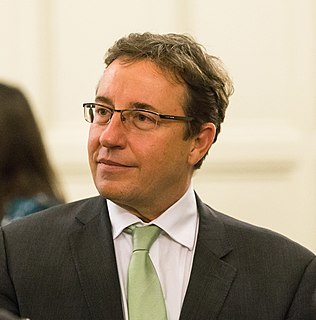A Quote by William J. Clinton
The world has never truly had to develop an ethic of interdependence rooted in our common humanity. And if we do it, the 21st century will be the most interesting, exciting, peaceful era in history.
Related Quotes
Thanks to the leadership of Vice President Gore, we have a government for the Information Age, once again a government that is a progressive instrument of the common good, rooted in our oldest values of opportunity, responsibility and community, devoted to fiscal responsibility, determined to give our people the tools they need to make the most of their own lives in the 21st century, a 21st century government for 21st century America.
We need to employ a secular approach to ethics, secular in the Indian sense of respecting all religious traditions and even the views of non-believers in an unbiased way. Secular ethics rooted in scientific findings, common experience and common sense can easily be introduced into the secular education system. If we can do that there is a real prospect of making this 21st century an era of peace and compassion.
The most important ingredient we put into any relationship is not what we say or what we do, but what we are. And if our words and our actions come from superficial human relations techniques (the Personality Ethic) rather than from our own inner core (the Character Ethic), others will sense that duplicity. We simply won't be able to create and sustain the foundation necessary for effective interdependence.
The future will be in the hands of those of you who belong to the 21st century. You have the opportunity and responsibility to build a better humanity. This means developing warm-heartednes s in this very life, here and now. So, do whatever work you do, but ask yourselves now and then, 'How can I contribute to human beings being happier and more peaceful?'
Creating harmony amidst diversity is a fundamental issue of the twenty-first century. While celebrating the unique characteristics of different peoples and cultures, we have to create solidarity on the level of our common humanity, our common life. Without such solidarity, there will be no future for the human race. Diversity should not beget conflict in the world, but richness.
































